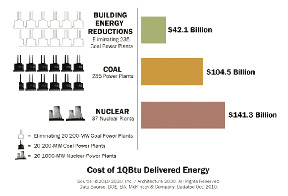Lately, I've been spending a lot of time thinking about indicators of effectiveness. Whether I hear debates about taxes, education or health reform, I find myself feeling frustrated - hearing people take positions but not stop to ask the question, "What indicators can we track to know if we're being effective?". To quote Albert Einstein, "Not everything that counts can be counted and not everything that can be counted, counts."
In these days of global crises - its becoming increasingly clear that metrics and accountability are critical to chart a course for different outcomes. We are at a new crossroads in time where the desire for information and the technology to deliver it are creating an unprecedented level of freedom (and confusion). Many things are being measured and counted...but are we counting what really counts?
We measure a lot of things all the time for many purposes. What does that measuring get us? What is the purpose of measuring? Is it to know how well we are doing? To inform our path forward? What exactly is the relationship between metrics and effectiveness? As an industry, LEED has dragged us (kicking and screaming) to a new level of accountability and forced us to measure performance, yet we still fall short at achieving the level of energy reduction we need to safeguard our future. Effectiveness is the gray area between the intention and the measurement. It's the "how" part of the equation - that translates between what we are trying to achieve and what indicators we are tracking/ what indicators we look to for feedback.
We have a long track record of counting things that don't really count, whether we think about our social, economic or education systems. Here are a few examples:
* Does the census inform the level of infrastructure development we need to support population growth? Do grades or standardized testing really tell us how effective our schools systems are or how well-educated our children are? Does social security, which is based on income data and not financial situation, really provide for those who most need it?
* Does the level of a corporate CEO's salary measure their effectiveness as a leader? Do quarterly profit figures really reflect the value of a company and its performance? Do sales targets, which focus on number of 'sales closed" indicate the quality of those accounts?
Do quarterly productivity measurements (GDP of our economy) really tell us how strong our economy is? Do unemployment figures really tell us how healthy the economy is when, sometimes, a drop in employment can indicate that people have given up looking for work?
* Doctors are evaluated by number of patients seen each day, but does that tell us how healthy we are? Length of hospital stays may tell us how efficient an institution is, but not how well we are cared for. Crime rate statistics encourage the construction of jails, but does that mean we are dealing effectively with the root of the problems? Monitoring the percentage of homeownership pushed lenders to give mortgages to people who couldn't afford them - did that help increase the number of homes?
What don't we measure? Does the health of the habitat in our community get reflected in our property taxes? Does the value of our job get reflected in our salaries (teacher, social worker, civil servant)?
So in terms of the building industry and what we count, we are just now (after thousands of years of settlement) beginning to count impact - energy consumption and carbon, habitat encroachment, public health. My concern is that we continue to focus on metrics that won't account for effectiveness - that our data will not translate into feedback loops that inform our path forward. We need to keep our focus on our goals (resilience of natural systems, public health, sustainable economies) and spend time defining which indicators will be valuable. Biodiversity as an indicator of ecological resilience, human (chemical) body burden as a measure of public health, equitable distribution of wealth as a sign of a healthy economy.
In our small corner of the world, we've been focusing on the built environment and the ability of design and construction professionals to be an effective part of the solution. We've spent the past year developing a set of indicators and metrics to apply to organizational performance, which will tell a company how successful they will be in delivering sustainable design solutions. In our SPI Green Firm Certification program, we've looked at moving "up the pipe" from LEED and the measurement of building performance to the "root causes" and the measurement of organizational capability and collaboration. As the program grows and we observe the changes taking place in all scales and types of organizations, we will continue to search for more indicators and ask better questions. It is our hope that this is one sign of a shifting culture - that all of us collectively are starting to focus on effectiveness and impact and not just what we can count.
Barbara Batsholom is the founder/executive director of NEXUS, a project of The Green Roundtable, Boston.
Tags:








